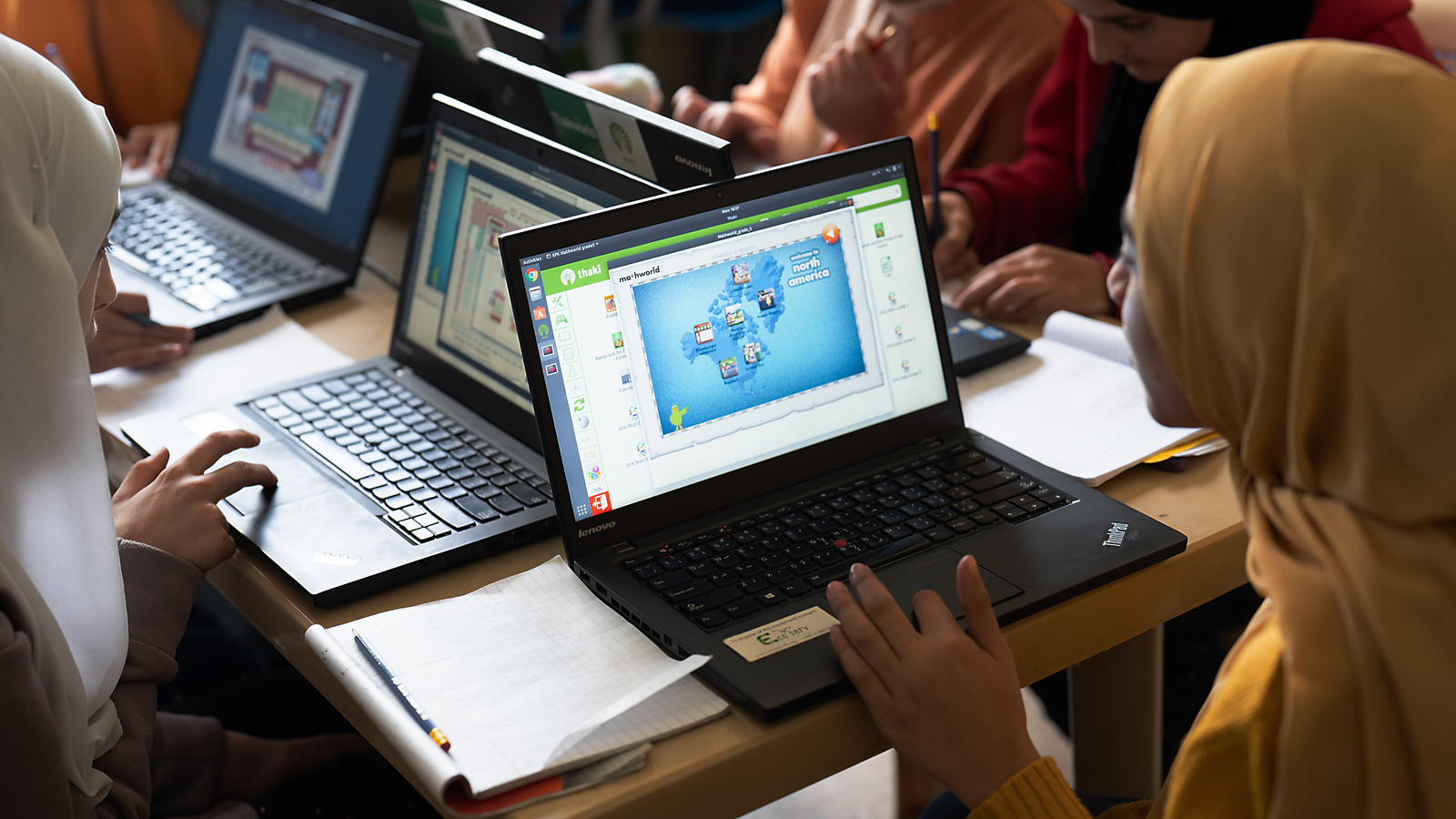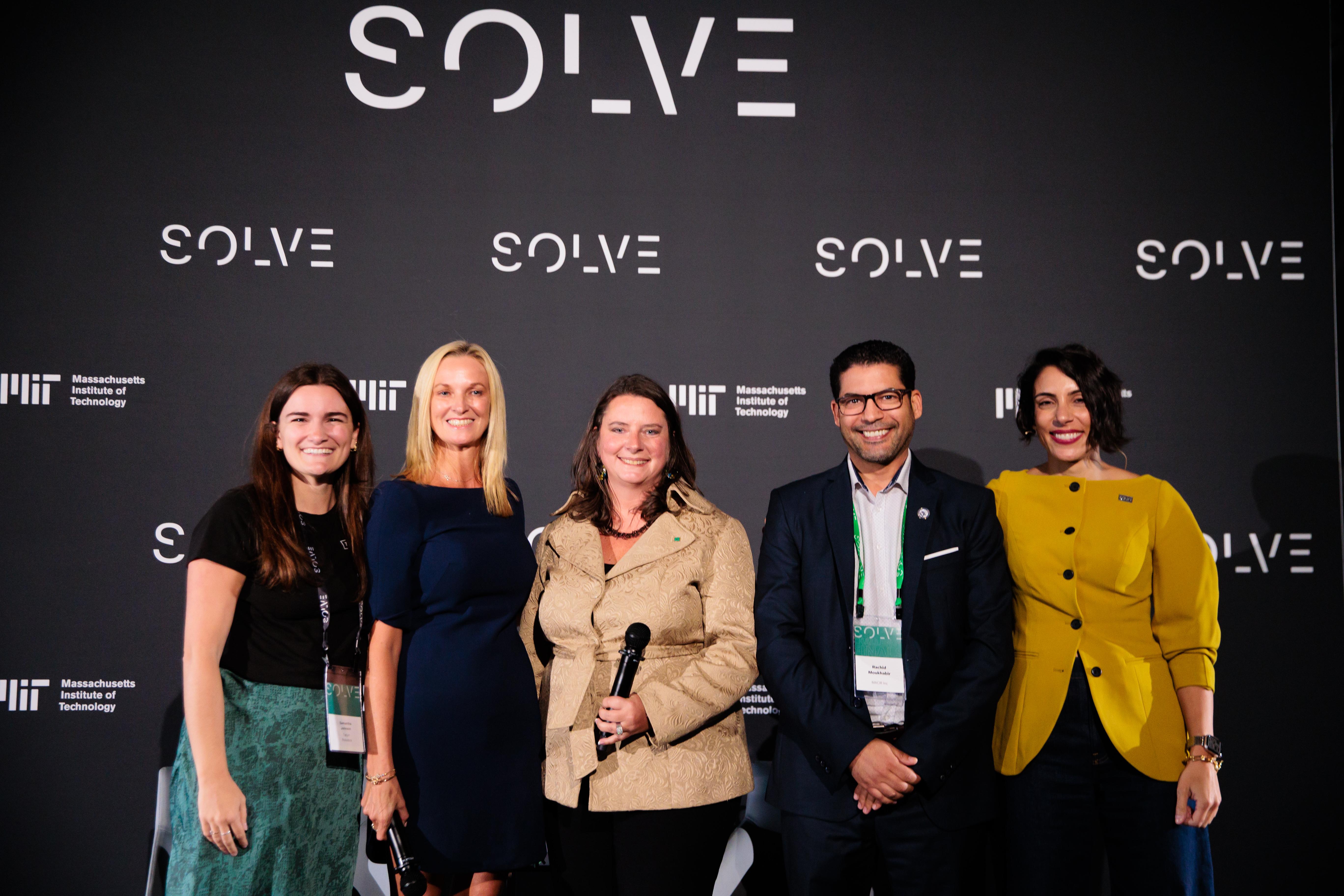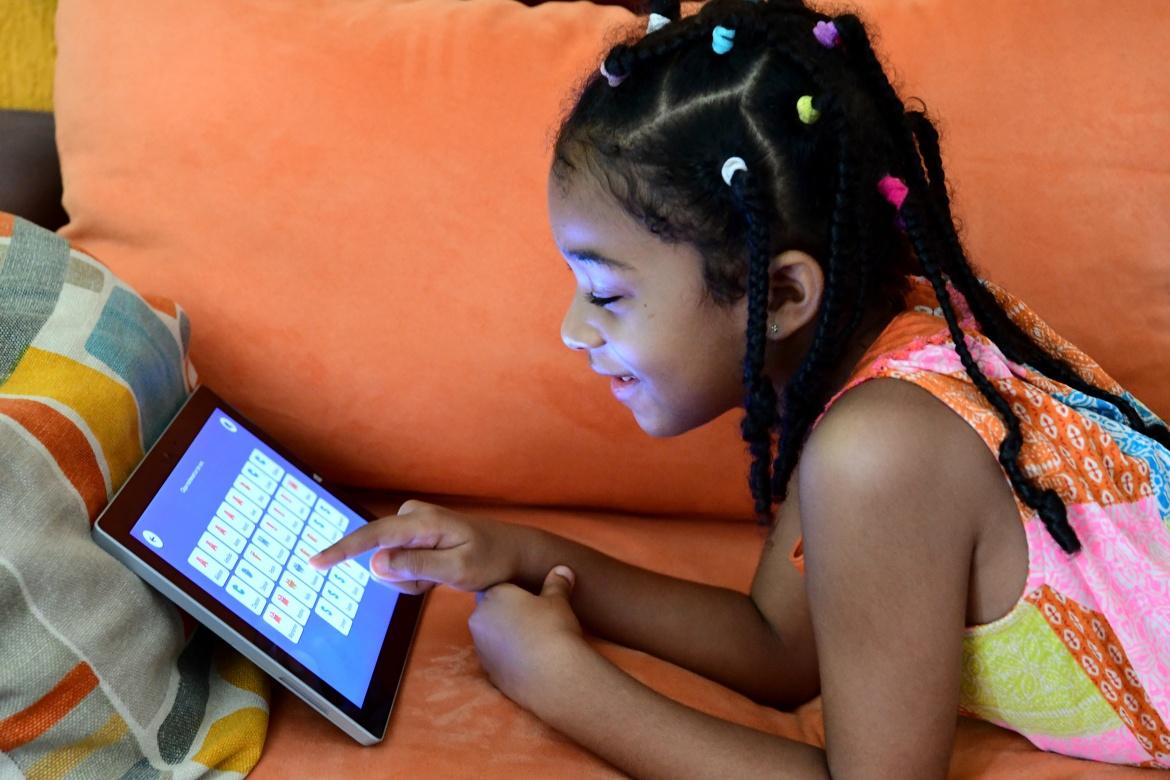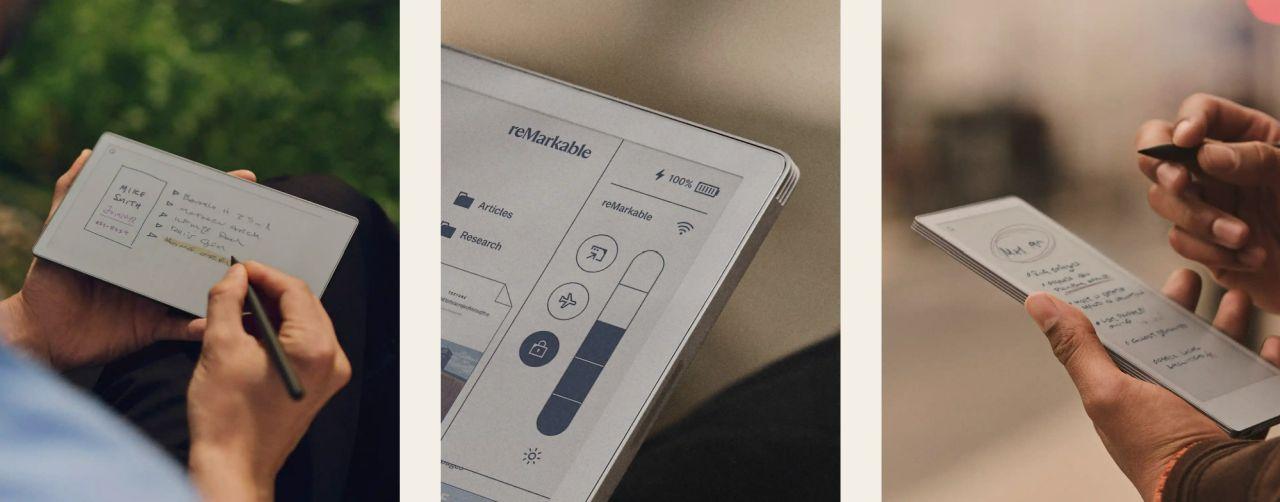
“Education is the one thing you can take with you.” A Q&A with Rudayna Abdo, Founder and CEO, Thaki
We caught up with 2020 Solver, Rudayna Abdo, Founder and CEO of Thaki. Thaki was created to expand access to education for refugees. After ten years, the organization now serves over 40,000 students with its learning tools, empowering refugee children with the tech they need to thrive.
Ten years on, what stands out to you most when you think about how far Thaki has come, from the first donated laptops to reaching tens of thousands of learners across the Middle East?
I am most humbled by the children and educators we work with. They are our teachers and heroes, and it is their hunger for learning and growth that truly inspires me. I am very grateful that many of the goals I dreamed of achieving in those early months have actually come true. But what stands out to me most is a sad realization that our beloved region (the Middle East) will not be left in peace, and that we still have work to do. Honestly, I thought by now there would be much less technology inequality, and that children would have consistent access to tech tools in the classroom, making Thaki’s mission obsolete. But the digital divide remains huge. Globally, we have all failed to make enough progress on this.Thaki was born from both personal conviction and a deep understanding of systemic challenges. How has your perspective on educational equity and sustainability evolved over the past decade?
Thaki’s mission is rooted in my personal belief that education can restore what conflict and crisis have taken from those affected. As a daughter of Palestinian refugees who were forced to leave their country, I grew up hearing that your education is the only thing you can take with you. That idea remains true today more than ever.Over the past decade, my understanding of educational equity and sustainability has evolved through firsthand experience of the realities faced by children and educators. Too often, international organizations arrive with agendas that overshadow the true needs and aspirations of the affected community. Outsiders may assume they’re bringing superior knowledge and services when, in fact, they may be contributing to the erosion of important vestiges of indigenous identity in the aim of modernizing. True equity means honoring a community’s dignity and preserving its culture and heritage. Sustainability includes giving agency to those impacted so that they can reclaim opportunities denied to them and build solutions that endure and adapt to their unique needs.
You often speak about the “waste of potential” among displaced children. Could you share a story that captures what it means to see that potential unlocked through Thaki’s work?
I’m constantly humbled by the curiosity, grit, and ability of the children we support. Despite all odds against them, I honestly don’t know how they find the fortitude to focus as intently as they do on their learning, but it shows me, once again, that to them, education is their lifeline. There is one young woman from Syria, Manal, who was in one of our partner schools in Lebanon. She was introduced to digital literacy through Thaki and is now a freelance graphic designer, supporting her family and deeply passionate about her work. Manal is a wonderful example of a learner who explored the wealth of educational content and software programs we preload on our laptops, and in doing so, discovered a talent and a passion that is now shaping her life.Thaki’s model depends on collaboration between corporations, educators, and tech innovators. What have you learned about building and sustaining partnerships?
Building partnerships requires a collaborative and innovative mindset, with shared values and ethics, not just shared goals. I am sincerely grateful to every company that has donated laptops or edtech resources to Thaki, and to every individual who has advocated within their organization to make that happen. Corporations must understand that our work isn't about CSR checkboxes. Working with Thaki does provide companies with a range of measurable environmental and social impact indicators. However, we see our partnerships as fundamentally about systemic change that respects community dignity. The most successful initiatives and partnerships occur when all parties, whether corporations, funders, content developers, or strategic partners, recognize that our end users are not just beneficiaries but partners in co-creating solutions. They are the voices that matter most.Sustainability comes from transparency and accountability. We must earn the trust of all parties involved along the entire value chain, and ideally, they become long-term partners who see our impact in tangible human terms and not just in numbers. Our partners understand that we operate in a region that is unpredictable and always at risk of geopolitical surprises, and they give us the grace of flexibility to allow us to adapt and innovate around the many unforeseen challenges that are flung at us.
Looking ahead, what does the next chapter of Thaki look like? What opportunities or innovations excite you most as you imagine the next ten years?
We plan to deepen our impact in the MENA region, staying focused on the Levant, where our roots are. While the region may well see continued political instability, which is beyond our control, I hope we can contribute to continuing the education and digital skills-building of the impacted communities that are the victims of all this injustice.Honestly, I don’t know how Palestinian genocide survivors from Gaza will manage to heal and rebuild their lives, but I’m determined to make this my top priority in the next decade.
Some of the current digital innovations frankly scare me: for example, how can we really ensure that AI adoption preserves human connections and promotes equitable development instead of the opposite? But I’m also optimistic and excited about emerging grassroots, tech-driven initiatives that are forces for good. We are looking forward to continuing to build our own community and welcome new supporters (readers can discover our anniversary campaign here).
I hope that in another decade, when Thaki turns 20, our systems will look very different and better able to deliver peace and justice for everyone.
Hero photo credit: Theirworld & Adrian Hartrick
Tags:
- Learning
- Global Challenges
- Q&A
- Tenth Anniversary
Related articles
-
Workforce Development for the Future: A Q&A with Michelle Hecht, Executive Vice President, Head of Corporate Affairs, Citizens

-
A LEAP in evidence-based innovation for education
How to address the need for evidence-based innovation in education by empowering researchers, social entrepreneurs and education organizations to work together.
-
Powered by Purpose: E Ink’s ePaper Technology Takes Aim at the World’s Toughest Problems
Because it draws power only when an image changes—and none at all while static—ePaper reduces energy consumption by orders of magnitude. That single breakthrough unlocks net-zero transit signs, off-grid medical notebooks, and other applications that traditional screens simply can’t power sustainably.